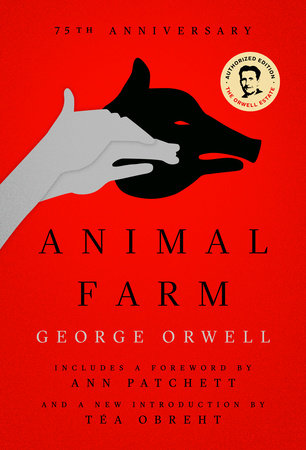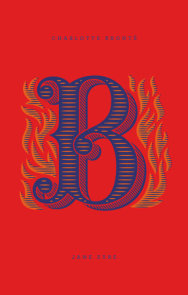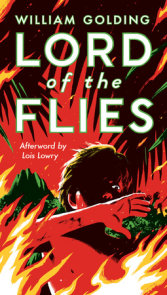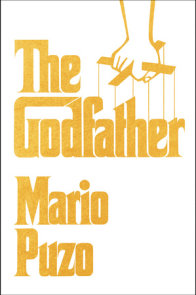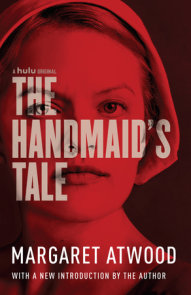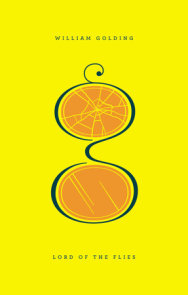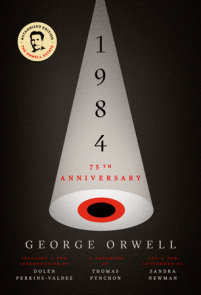READERS GUIDE
Questions and Topics for Discussion
INTRODUCTION
“. . . remember always your duty of enmity towards Man and all his ways. Whatever goes upon two legs is an enemy. Whatever goes upon four legs, or has wings, is a friend. And remember also that in fighting against Man, we must not come to resemble him . . . All the habits of Man are evil. And, above all, no animal must ever tyrannise over his own kind. Weak or strong, clever or simple, we are all brothers. No animal must ever kill any other animal. All animals are equal.” —Animal Farm, from Old Major’s speech
It has been said that Animal Farm is a byproduct of George Orwell’s long-held hatred of totalitarianism. Clearly, in readingAnimal Farm, those familiar with history will find pointed parallels to Stalin’s dictatorship and reign of terror. In this case, however, the principal characters are indeed animals who, possessed of human or near-human traits and abilities, set out to create a Utopian society devoid of human influence.
In the novel’s opening scene, Old Major, the “prized Middle White Boar,” and the oldest and wisest of all beasts on Manor Farm, gathers the animals and tells them of a vision that came to him in a dream. In essence, he has foreseen a world in which animals rule themselves, live among one another equally, and work only toward the betterment of their own. Inspired by these words, and chaffing under their human master, Mr. Jones, the animals gather secretly and plan rebellion. Led by two of the farm’s pigs, Napoleon and Snowball (for the pigs soon prove the cleverest of all the animals on the farm), the animals mount a successful attack, rid themselves of Jones and his human counterparts, and take control of the farm.
With new found freedom and a sense of optimism toward the future, the animals set forth in re-establishing Manor Farm, now renamed Animal Farm, as their own. Under the leadership of the pigs, farm labor is organized and divided among the animals, and a list of seven commandments is established—deemed unalterable—under which all animals on the farm would adhere. Slowly, however, some of the animals become wary of the pigs, who don’t necessarily work, but supervise, and whose pronouncements become law despite little or no discussion. The pigs’ usurpation of power continues to the point where their rule is questioned only upon pain of death. Consequently, Old Major’s vision of a peaceful brotherhood of animals has mutated into a world where reality and truth are molded and disseminated to support the ruling class.
With biting irony and sharp insight into human nature, Orwell illustrates the dangers inherent in a complacent citizenry and the consequences of unchecked power. To this day, Animal Farm remains a haunting vision—the lessons of which might be heeded by all concerned with issues of self-determination and political process.
ABOUT GEORGE ORWELLEric Arthur Blair (George Orwell) was born in 1903 in India, where his father worked for the Civil Service. The family moved to England in 1907 and in 1917 Orwell entered Eton, where he contributed regularly to the various college magazines. From 1922 to 1927 he served with the Indian Imperial Police in Burma, an experience that inspired his first novel, Burmese Days (1934). Several years of poverty followed. He lived in Paris for two years before returning to England, where he worked successively as a private tutor, schoolteacher and bookshop assistant, and contributed reviews and articles to a number of periodicals.Down and Out in Paris and London was published in 1933.
In 1936, he was commissioned by Victor Gollancz to visit areas of mass unemployment in Lancashire and Yorkshire, andThe Road to Wigan Pier (1937) is a powerful description of the poverty he saw there. At the end of 1936 Orwell went to Spain to fight for the Republicans and was wounded, and Homage to Catalonia is his account of the civil war. He was admitted to a sanatorium in 1938 and from then on was never fully fit. He spent six months in Morocco and there wrote Coming Up for Air. During the Second World War he served in the Home Guard and worked for the BBC Eastern Service from 1941 to 1943. As literary editor of the Tribune he contributed a regular page of political and literary commentary, and he also wrote for theObserver and later for the Manchester Evening News. His unique political allegory, Animal Farm, was published in 1945, and it was this novel, together with Nineteen Eighty-Four (1949), which brought him world-wide fame.
George Orwell died in London in January 1950. A few days before, Desmond MacCarthy had sent him a message of greeting in which he wrote: ‘You have made an indelible mark on English literature . . . you are among the few memorable writers of your generation.’
DISCUSSION QUESTIONS“Surely there is no one among you who wants to see Jones come back?” Throughout the animals’ reign on the farm, Napoleon and Squealer dangle the possibility of Jones’ return as a constant danger, keeping most of the other animals in fear, and thus, submission. Do you think that this was a valid threat? Do you feel that, overall, the animals were better or worse off once they were in control of the farm?
Throughout the novel, the natural characteristics of each animal figure heavily in their motives and pronouncements. How do the actions of Napoleon (a pig), Boxer (a horse), Benjamin (a donkey) and the dogs and sheep reflect the traits normally associated with the animal? Do your feel that Orwell purposely chose certain types of animals to assume certain roles?
Repeatedly, the animals sacrifice themselves in order to complete the windmill, only to see it destroyed time and again. What, if any, symbolic role does the windmill play? How do you account for the pigs’ insistence that it be built and re-built?
On pages 3 – 10 of the novel, Old Major expresses his vision of a society free of human influence and control. Compare and contrast this against what eventually plays out on Manor Farm once the animals have taken over. What, if any, concepts or goals remain the same?
In one of the first scenes in the novel, Old Major sings Beasts of England, effectively bringing the animals together under a common purpose. Indeed, throughout the initial struggle against Man, it is a wildly popular and inspirational song. Yet later on, when the animals have successfully conquered the humans, Squealer, “attended by two dogs,” announces that Beasts of England had been abolished and “was no longer needed.” Why? Can you cite other examples where what was once held “sacred” and “necessary” to the common cause was later banished by decree?
Following the massacre of “guilty” animals at the hands of Napoleon and the other pigs, Clover reflects sadly on what she thought life should have been like on Manor Farm: “If she herself had had any picture of the future, it had been of a society of animals set free from hunger and the whip, all equal, each working according to his capacity, the strong protecting the weak, as she had protected the lost brood of ducklings with her foreleg on the night of Major’s speech.” Is Clover overly idealistic in feeling this way? Do you feel that such a community can exist?
Initially, the seven commandments issued by the animals were deemed unalterable, and symbolized a code by which the animals could live peacefully and equally among themselves. How and by what means were the commandments eventually changed? Choose and discuss one or two individual commandments. Who benefited in each instance and how?
Animal Farm is replete with subtle and not so-subtle lessons on blind conformity and the misuse of power. What are some of the lessons you’ve personally taken away from the novel regarding education of the masses, knowledge of history, idealist thought and class structure? Has the novel changed your worldview in any way?
Can you account for how the pigs ascended so quickly to power and dominion over all other animals? What key steps did they take, or more specifically, which elements did they make certain to control?
Although Napoleon is considered the absolute Leader of Animal Farm, it is Squealer who is most adept at conveying the “party line” to the animals, often convincing them to disbelieve their own eyes. What methods does Squealer employ to deceive and/or placate the other animals? How does the concept of memory (or lack thereof) figure in Squealer’s pronouncements and dealings with them?
The novel ends with a chilling passage, wherein Clover notices something odd about the humans and pigs meeting in the farmhouse: “Twelve voices were shouting in anger, and they were all alike. No question, now, what had happened to the faces of the pigs. The creatures outside looked from pig to man, and from man to pig, and from pig to man again; but already it was impossible to say which was which. What is Orwell saying here? How do you interpret this final scene?
Discuss Napoleon’s interaction with the humans after the animals have taken control of the farm. What does Napoleon’s dealings with Whymper say about the self-sufficiency of the animals? What is at the root of Napoleon’s interplay with Pilkington and Frederick?
In reading Animal Farm, Lord Acton’s famous pronouncement “Power tends to corrupt, and absolute power corrupts absolutely” may come to mind. How and why is this statement applicable to the course of events in the novel?
When first published, Animal Farm was seen as a direct attack on Stalinism and the communist regime in Russia. In even a cursory reading, one can see direct parallels in the novel to actual players in Russian history. Is it your opinion, however, that Animal Farm is necessarily a rejection only of Communism? Against what other systems or situations are Orwell’s observations applicable?
In the aftermath of the rebellion against Mr. Jones, Snowball and Napoleon emerge as the predominant figureheads—yet it is Napoleon who eventually consolidates and assumes power as unquestioned leader. Snowball, now banished from the farm, goes on to assume a newer and possibly more powerful role. Describe the differences between Snowball and Napoleon. What actions taken by Napoleon ensured his ascension to power and “victory” over Snowball? Why does Snowball play so heavily in the decisions and actions on Manor Farm even after he’s no longer there?
Among the various characters in the novel, whom do you feel is the noblest or most worthy? Which animal would be best suited to lead a group against Napoleon and the pigs? What qualities would this animal need to posses to do so?
Why do Napoleon and Squealer consistently emphasize ceremony, tradition and rank? Do you feel that titles such as “Animal hero, second class,” or the “Order of the Green Banner” (page 87) mean as much to the rest of the animals as they do the pigs?
Do you find it strange that Molly, the narcissistic and lazy horse, successfully leaves the farm and goes to live among humans, even though she is fully aware of the “evil” that Man represents? What deeper meanings or symbolisms do Molly’s actions hold?
The animals successfully repel a second human attack on the farm. As a consequence of the battle, however, the windmill is destroyed. Squealer considers this outcome an unmitigated victory. Why is Boxer so reluctant to agree?
Benjamin, the dour and unflinching Donkey, frequently assumes a sort of “middle ground” regarding events onAnimal Farm. He repeatedly states that “Donkeys live a long time,” and that regardless of political outcomes, “life would go on as it always had—badly (page 41).” Discuss the symbolism of Benjamin and his various pronouncements. What role does this character serve in Animal Farm?









